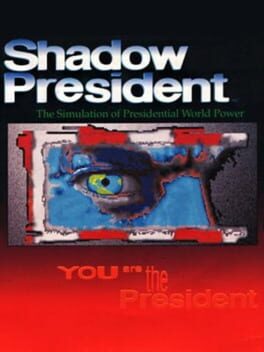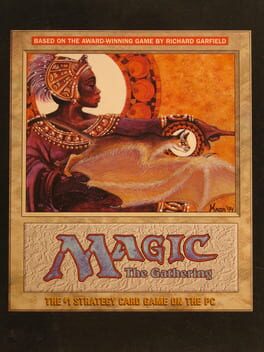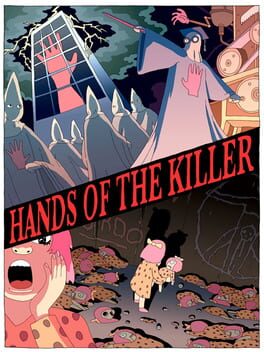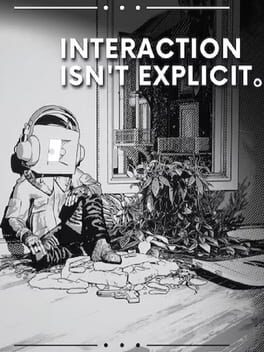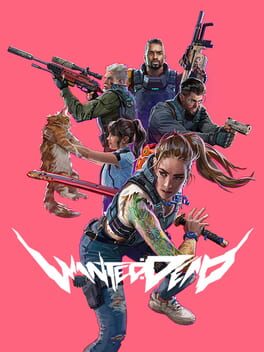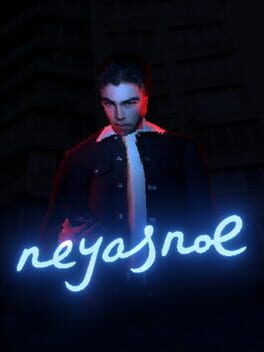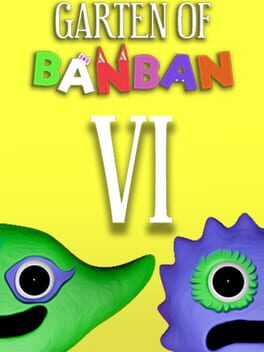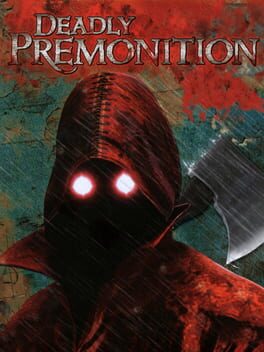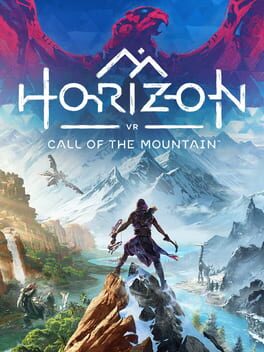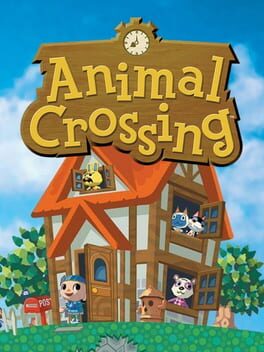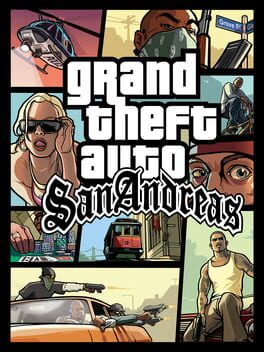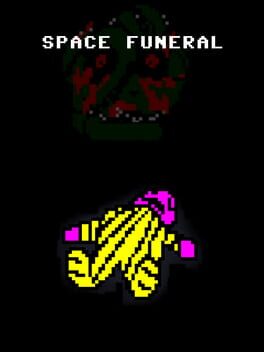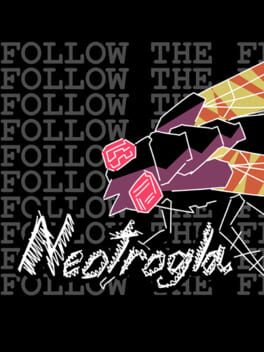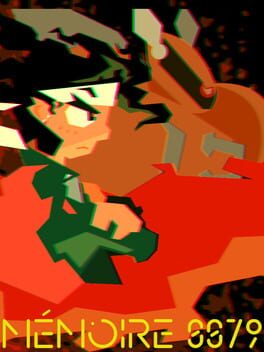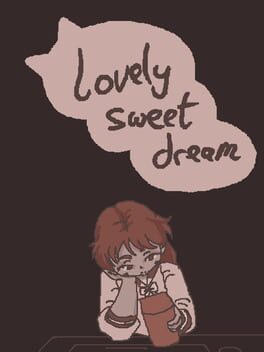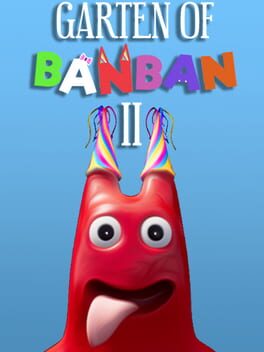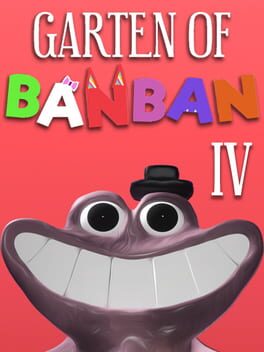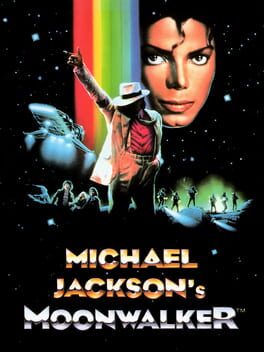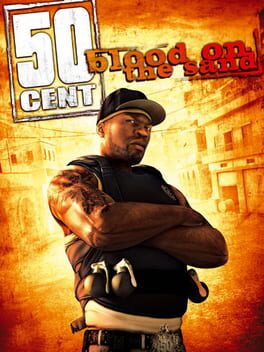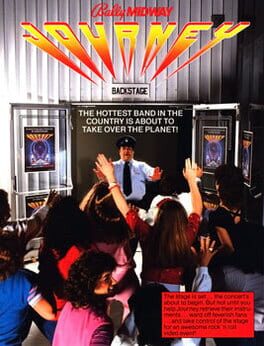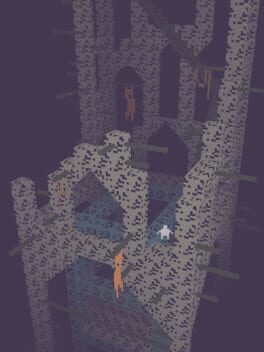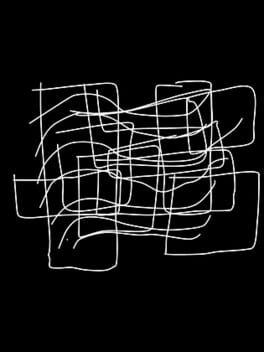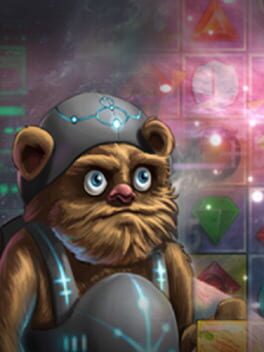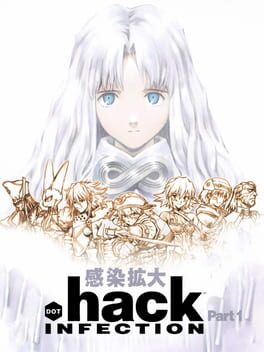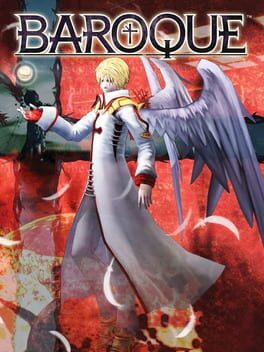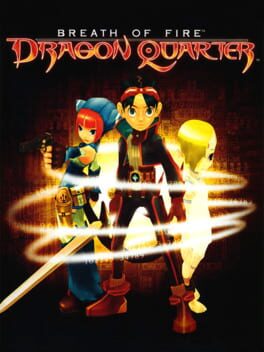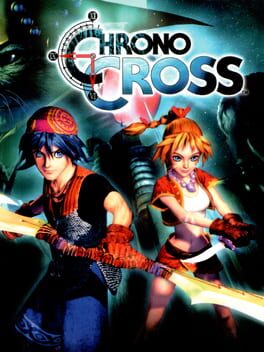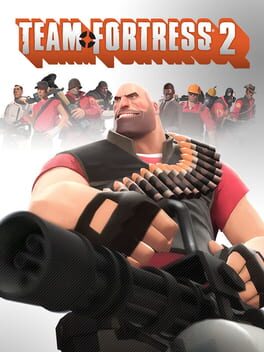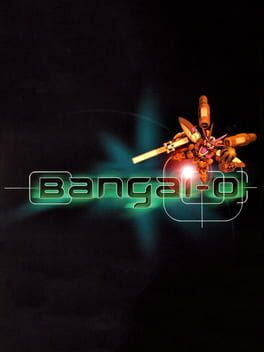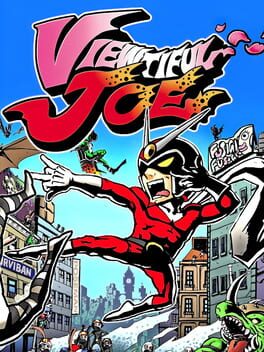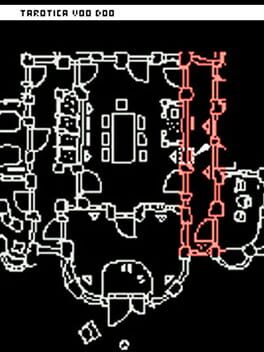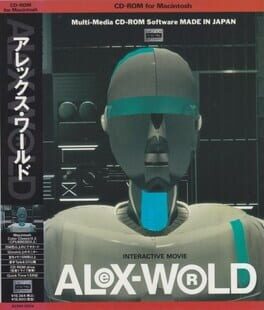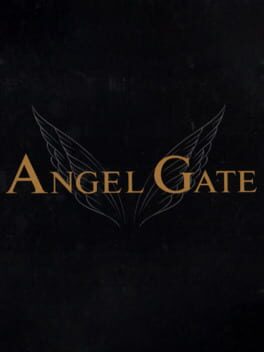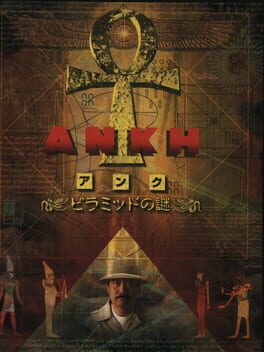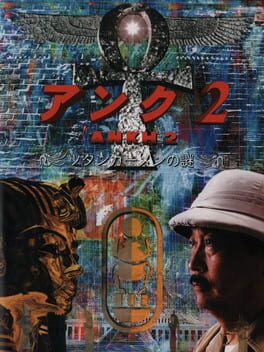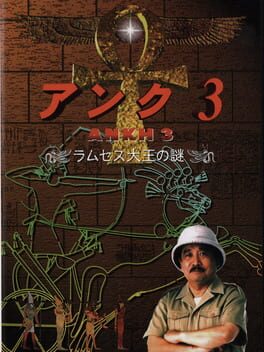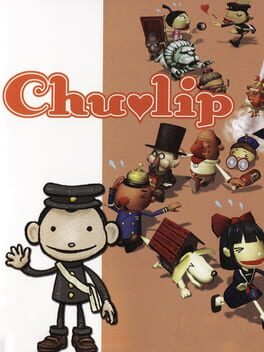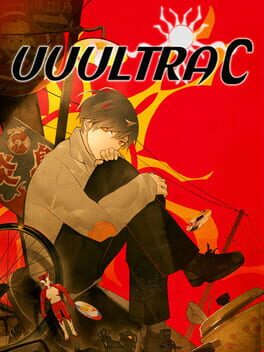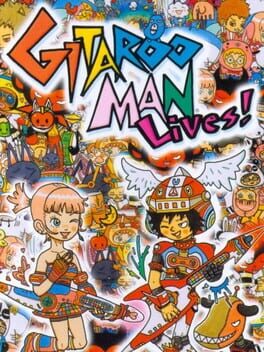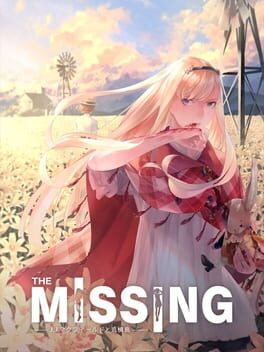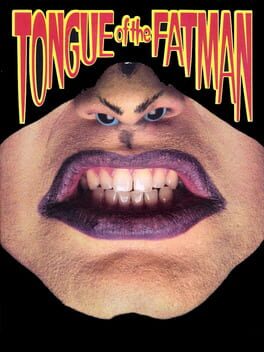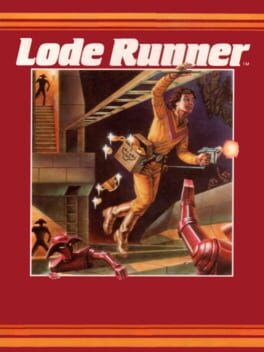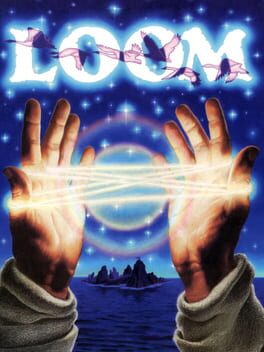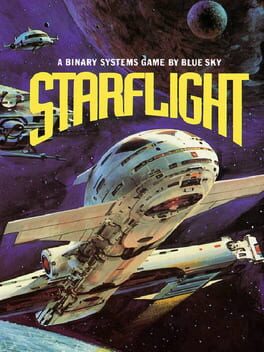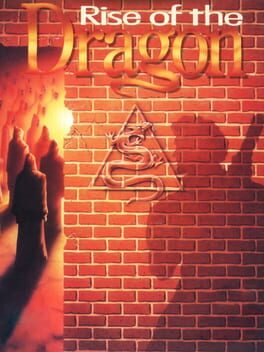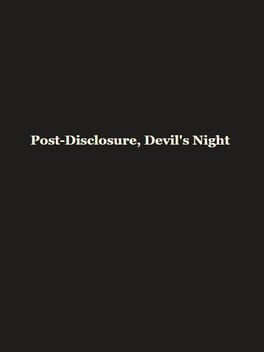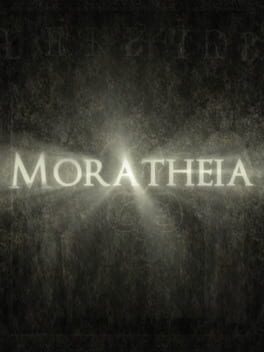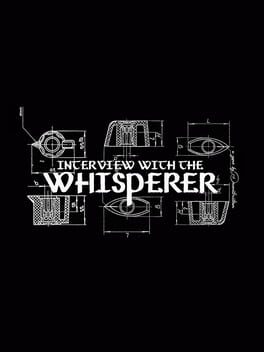ludzu
517 reviews liked by ludzu
Shadow President
1993
i wired 20 billion in military aid to zimbabwe and now they are calling themselves Roadesia. Please,i am sorry. all the faces at the bottom of the screen are Screaming at me! Sorry for accident. i only tried to open a new chuck taylors factory
The Silver Case
2016
This review contains spoilers
In a game, let alone continuity, lousy with sharp, confrontational artistic direction, it’s one as simple as the back of the box that continues to work its way through me. It’s the illustration of Kusabi, Sakura, and Kosaka, in particular - Sakura’s exaggerated frown extends out of the image towards you while Kusabi and Kosaka converse around her. If you’ve played the game, you’re aware that this configuration can only happen in the events proceeding the finale (a massive torpedo-spoiler on the back of the box, funny!). By extension, this also means that the illustration is, to whatever degree, a reflection on the status quo after case#5:lifecut, i.e. the chapter of the game where everything boils over, a majority of the Transmitter cast straight up dies, and radical actions by the hands of the remaining cast occur.
I love this illustration for a few reasons - for one, Takashi Miyamoto captures a sense of mundanity so well. In game, you’re never really able to bear witness to a Kusabi at peace in ordinary life, and here he’s beautifully human in his pose - well-earned after his arc through the game. Secondly, through that same focus on the mundane lies a commentary on the dynamics these characters are engaged in. I don’t think it’s much of a stretch to imply that the gender dynamics put forth here can be seen as a disappointing reminder that leaving Kusabi (love ‘em as I do) as the sole surviving veteran of the HCU means that the same bitterness which ostracized Hachisuka, possibly enabling something within to give in to her inevitable death-filing and appearance as Ayame, is likely still in the air. But these observations pale, in my opinion, to the context.
As she continues ascending the 24th Ward’s crime department, after bearing witness to the very operation that almost(/successfully?) doomed her and the player character to a life of artificial personhood, and after witnessing the takedown of the two major antagonists of the game, Nezu and (eventually) Uminosuke, she still frowns at us, the player. Why? I thought danwa was a happy ending.
-
TSC is one of few games I can think of that really eludes simple genre description. Sure, it’s a crime procedural, up until it isn’t. It’s a conspiracy thriller... in spots. It’s Lynchian surrealist dystopia? Alright we’re just gonna say words now, I guess? The only thing that comes to mind for descriptors is, like, slipstream fiction, which, given 25W references seminal proto-Cyberpunk novella The Girl Who Was Plugged In, seems apt enough to settle on. I won’t even evoke the P-word. The one that rhymes with “toast auburn.”
But really, this thought exercise is all just a veiled move to get you to wonder about the limitation of genre fiction as it applies to TSC, and poke at its aspirations. For this to be a standard crime procedural, you’d expect the HCU to... function in some capacity? And conspiracy thriller’s a no-go considering the weight that spirituality and all other intangibles have here, in my opinion. The way I’ll continue from this point to put it is thus: the Mikumo 77 incident, the murder of Kamui by the underworld factions, and the ensuing Shelter Kids policy reverberate through the story on many different frequencies, and the effect of it all is so bleak that only genre convention can make the discussion palatable as fiction. But it doesn’t always cover it: the melancholic, ambling work of Tokio through Placebo, the brain-swelling conflict of information in Transmitter, I think both serve as a reminder that there’s no easy out from underneath the sin of government control. It’s no surprise, I guess, that the symptoms get much, much worse when we return to Kanto in The 25th Ward.
-
Kamuidrome thru danwa (and the equivalent reports from Placebo’s end) are so dizzying and hard to come to terms with that I have literally shaved my head since first playing this game. This is actually true! I have death-filed!
That said, I feel like an essential piece of advice I could give someone who’s in for their first time is to enact judgment on the information based on who and when it’s coming from. This is easy enough in some cases - I think most people are primed from birth to hate pedo-fascist Nakategawa enough to not mind his words. But even fan-favorite Kusabi, for instance... this entire game is a slow fade-to-white for him as he unlearns an entire ideology of criminality equating plague, one he’s enforced so much with violence, not just as a cop, but as a particularly fucked up cop. In the beginning, I wouldn’t blame you for sticking with the competent elder authority of the cast, but if the ending moments of Parade don’t convince you to question the prior chapters, then I don’t know what will. The state of this world can be figured out with relative certainty as long as you keep track of where you are in the game’s web.
Though deeply confusing (& not helped by a localization that I can only describe as “challenging” (no shade to Grasshopper James btw, I can only imagine trying to piece this together 😭)), this game masterfully tiers up its information in a way that makes the trek through the underbelly of the 24th Ward feel so uniquely haunting. While certain aspects (the bench-warming faction war at the batting center comes to mind) do feel a bit bizarre and maybe even underdeveloped as words on a (cyber)page, the thematic tapestry of this game is exceptionally rich, even among other lauded-for-thematic-richness games. I’m a lifelong MGS fan and even I have to admit that after coming to conclusions confident enough to type words about, I think we might be seeing a lunch-eating of unseen proportions.
I love this illustration for a few reasons - for one, Takashi Miyamoto captures a sense of mundanity so well. In game, you’re never really able to bear witness to a Kusabi at peace in ordinary life, and here he’s beautifully human in his pose - well-earned after his arc through the game. Secondly, through that same focus on the mundane lies a commentary on the dynamics these characters are engaged in. I don’t think it’s much of a stretch to imply that the gender dynamics put forth here can be seen as a disappointing reminder that leaving Kusabi (love ‘em as I do) as the sole surviving veteran of the HCU means that the same bitterness which ostracized Hachisuka, possibly enabling something within to give in to her inevitable death-filing and appearance as Ayame, is likely still in the air. But these observations pale, in my opinion, to the context.
As she continues ascending the 24th Ward’s crime department, after bearing witness to the very operation that almost(/successfully?) doomed her and the player character to a life of artificial personhood, and after witnessing the takedown of the two major antagonists of the game, Nezu and (eventually) Uminosuke, she still frowns at us, the player. Why? I thought danwa was a happy ending.
-
TSC is one of few games I can think of that really eludes simple genre description. Sure, it’s a crime procedural, up until it isn’t. It’s a conspiracy thriller... in spots. It’s Lynchian surrealist dystopia? Alright we’re just gonna say words now, I guess? The only thing that comes to mind for descriptors is, like, slipstream fiction, which, given 25W references seminal proto-Cyberpunk novella The Girl Who Was Plugged In, seems apt enough to settle on. I won’t even evoke the P-word. The one that rhymes with “toast auburn.”
But really, this thought exercise is all just a veiled move to get you to wonder about the limitation of genre fiction as it applies to TSC, and poke at its aspirations. For this to be a standard crime procedural, you’d expect the HCU to... function in some capacity? And conspiracy thriller’s a no-go considering the weight that spirituality and all other intangibles have here, in my opinion. The way I’ll continue from this point to put it is thus: the Mikumo 77 incident, the murder of Kamui by the underworld factions, and the ensuing Shelter Kids policy reverberate through the story on many different frequencies, and the effect of it all is so bleak that only genre convention can make the discussion palatable as fiction. But it doesn’t always cover it: the melancholic, ambling work of Tokio through Placebo, the brain-swelling conflict of information in Transmitter, I think both serve as a reminder that there’s no easy out from underneath the sin of government control. It’s no surprise, I guess, that the symptoms get much, much worse when we return to Kanto in The 25th Ward.
-
Kamuidrome thru danwa (and the equivalent reports from Placebo’s end) are so dizzying and hard to come to terms with that I have literally shaved my head since first playing this game. This is actually true! I have death-filed!
That said, I feel like an essential piece of advice I could give someone who’s in for their first time is to enact judgment on the information based on who and when it’s coming from. This is easy enough in some cases - I think most people are primed from birth to hate pedo-fascist Nakategawa enough to not mind his words. But even fan-favorite Kusabi, for instance... this entire game is a slow fade-to-white for him as he unlearns an entire ideology of criminality equating plague, one he’s enforced so much with violence, not just as a cop, but as a particularly fucked up cop. In the beginning, I wouldn’t blame you for sticking with the competent elder authority of the cast, but if the ending moments of Parade don’t convince you to question the prior chapters, then I don’t know what will. The state of this world can be figured out with relative certainty as long as you keep track of where you are in the game’s web.
Though deeply confusing (& not helped by a localization that I can only describe as “challenging” (no shade to Grasshopper James btw, I can only imagine trying to piece this together 😭)), this game masterfully tiers up its information in a way that makes the trek through the underbelly of the 24th Ward feel so uniquely haunting. While certain aspects (the bench-warming faction war at the batting center comes to mind) do feel a bit bizarre and maybe even underdeveloped as words on a (cyber)page, the thematic tapestry of this game is exceptionally rich, even among other lauded-for-thematic-richness games. I’m a lifelong MGS fan and even I have to admit that after coming to conclusions confident enough to type words about, I think we might be seeing a lunch-eating of unseen proportions.
Magic: The Gathering
1997
been playing hella yugioh and moved back 2 my parents place which might indicate illness & questionable judgment 2 some (🧍♂️) but confident in saying this is juiced. played this with a 2016 mod or smthn similar that added in cards up until then & just went absolutely 2 town with some green/white creature spam. just gets that i like being teased a lil with some perfunctory side quests and random encounters until i can go in the shop & get that one absolutely busted card that'll take my deck from celtics shaq at the free throw line brick machine to the most consistent bomb after bomb pile u've seen since the obama administration. late 90s British pc gaming influence all over this tooooooo every piece of armor is grainy as fuck all the sorceresses & enchantress sprites are just recolored elviras every creature from beyond the grave has glowing red eyes. shit just closes itself automatically when u beat the game too no credits no nayfin this is just gaming at its finest man.
Hands of the Killer
2020
Dares to ask what video games might look like had we all gotten home computers in 1917. Much more substantial than the first one, with kind of a symphonic structure. The first section, the modern apartment building, had all the instinctive joy of pointless exploration that I remember experiencing the first time I played Deus Ex. The kitsch architectural substrata are themselves a kind of a pale, kitschy callback to something like Goblet Grotto, but it blossoms really nicely into a manic final sequence that reminds me of the experience of reading Une semaine de bonte in one sitting at 4am.
This review contains spoilers
My interactions with your mother are quite explicit.
Feels out of time: not just like a YouTube essay but like YouTube essays a decade ago, as if it were still shaking off the baby feathers of Mr. Plinkett and the Angry Video Game Nerd. Fundamentally wrongheaded assessment of design born of a desperate love of dichotomies. Thought it might be a joke when he mentioned Shadow of the Colossus. Earns half a star for bashing Final Fantasy XVI.
Feels out of time: not just like a YouTube essay but like YouTube essays a decade ago, as if it were still shaking off the baby feathers of Mr. Plinkett and the Angry Video Game Nerd. Fundamentally wrongheaded assessment of design born of a desperate love of dichotomies. Thought it might be a joke when he mentioned Shadow of the Colossus. Earns half a star for bashing Final Fantasy XVI.
i dunno, let's keep this quick. to say it's a bit clumsy is an understatement - and there are certainly aspects of the overall narrative i struggle with - but the depths of its sincerity won me over. i have no particular attachment to yakuza 7 either, and in fact i find much of that game to be very awkward, stilted, and grating so ultimately no one's more stunned than myself here.
when it's not luxuriating in this chilled-out ocean's twelve vibe which i loved, infinite wealth is written with far more intentionality and consideration than most entries in the series; while one might accuse of it of verging on threadbare or cloying for its strict emphasis on theme, i think the game trusts its audience to take some of the emotional leaps necessary to make the storytelling work. character writing for the leads and the party members has seen a dramatic improvement across the board. ichiban as usual brings a lot of levity to the table - thankfully none of it quite as irritating in the zany sense as 7 liked to employ - but kiryu's portions of the game are comparatively sobering. collecting memoirs has a weird psychological effect at times but the series has earned the right to do this by this point given how much of the kiryu saga can feel siloed or compartmentalized - in the same vein as gaiden, the game almost damns him for this, for never taking a chance to stop and reflect, for the consequences of his interminable martyr complex
that tendency to bury the past is only contrasted further by infinite wealth being maybe the most direct sequel the series has seen yet - the events of that game are still fresh in everyone's mind and sets the stage for the overarching conflict and everyone's investment in said conflict. it's a surprisingly natural extension of a lot of 7's themes, and i found it worked better for me this time. 7 often felt more gestural than anything else - to me it balanced far too much as this metaphorical (and literal) tearing down of the old ways, handling the introduction of a new protagonist, paying lipservice to series veterans and setting up parallels to the original ryu ga gotoku. infinite wealth to me feels more fully-formed, more confident; i think the team was able to use this title's unique hook and premise to really bring the most out of 7s promise of something new, and it could only have achieved it by taking the time to reflect on the past.
to this end: they made the game a JRPG this time, that counts for something. and not just a JRPG but one that feels as close to traditional RGG action as possible. some excellent systems this time with a lot of fascinating interplay and the level curve is fantastic. not necessary to sum up all the changes, you've seen them, but they really promote a lot of dynamic decision-making with respect to positioning and once you figure out how status effects can correlate with them you feel like your third eye's opening. very fond memories here of navigating around a crowd of enemies - some of whom have been put to sleep - and figuring out how best to maximize damage without waking anyone drowsy up. lots more strategy and enjoyment to be had here than pretty much anywhere in 7.
that said, i know RGG prides themselves on the statistics relating to players completing their titles, but they could really afford to take a few more risks with enemy waves in the main campaign. i felt like my most interesting encounters were usually street bosses or main story bosses, but the main campaign's filled with trash mobs. and i'm not saying every fight has to be some tactician's exercise - in fact i think that's the opposite of what people actually would enjoy - but i really wish the game took the time to play around even more with positioning. there are some exciting scenarios in the game that are too few and far in-between. stages that split up the party, encounters with unique mechanics...would really liked to have seen more in that vein.
some extra notes - would like to dig a bit deeper into the strengths of the narrative as well as some additional hangups but i can't be assed to write more
- honolulu's great, it gets probably a little too big for its own good but it's a real breath of fresh air for most of the game
- yamai is the best new character they've introduced in years
- dondoko island feels like a classic yakuza minigame in the best possible way, might even represent the apex of this kind of design. not obscenely grindy but just something casual and comfortable with enough layers to dig into without being overwheming and enough versatility to express yourself. shame you can't really say the same for sujimon!
- kiryu's party is disarmingly charming and they have some insanely good banter
- despite what some have said, i think this is a good follow-up to gaiden. it's not explicit about it but this is still very much a reckoning with kiryu's character and his mentality; it is every bit as concerned and preoccupied with the series mythos, the core ideas and conflicts driving a lot of installments
- honestly found the pacing to be on-par for the average RGG title if not better. i can concede that the dondoko island introduction was a bit too long but that is the most ground i can afford. if we can accept y5 into our hearts we can accept infinite wealth; IW makes y5 look deranged for its intrusiveness despite both titles occupying a similar length. if any of it registers as an actual problem, i think people would benefit from revisiting yakuza 7 to find it is almost exactly the same structurally if not worse
- IW is home to maybe the best needle drop in the medium
- played in japanese, like i usually do, so no real interest in commenting on the english dub since it's not real to me but i will say that what i listened to seemed like a bit of a step back from the dub quality in previous RGG games. yongyea isn't a convincing kiryu either and while i could be a bit more of a hater here all i will say is there is a STAGGERING whiplash involved in casting a guy like that as the lead in a game with themes like this. in a grouchier mood, i think it would genuinely be a bit difficult to look past this and it does leave me feeling sour, but ultimately the dub doesn't reflect my chosen means of engaging with the title and it never will
- what is difficult to look past is the game's DLC rollout, which arbitrarily gates higher difficulties, new game +, and a postgame dungeon. i acquired these through dubious means (which i highly recommend you also do) so i feel confident in saying they're really not at all worth the money unless you had a desire to spend more time in this world, but what a colossal and egregious failure to price it in this fashion. new game + specifically has tons of bizarre issues that make me believe a revision of some kind was necessary.
- you will not regret downloading this mod that removes the doors in dungeons
long story short, ryu ga gotoku's journey began in 2005 with a simple motif: to live is to not run away. so much of infinite wealth is about taking that notion to its furthest extent. it couldn't have possibly hit at a better time for me. at times it might be a classic case of this series biting off a bit more than it can chew for a sequel, but i don't think there's anything you can reliably point to that would make me think this is one step forwards, two steps back.
also awesome to have a game that posits that hawaii is filled with the fire monks from elden ring and then you have to travel to the resident evil 4 island to beat them up
when it's not luxuriating in this chilled-out ocean's twelve vibe which i loved, infinite wealth is written with far more intentionality and consideration than most entries in the series; while one might accuse of it of verging on threadbare or cloying for its strict emphasis on theme, i think the game trusts its audience to take some of the emotional leaps necessary to make the storytelling work. character writing for the leads and the party members has seen a dramatic improvement across the board. ichiban as usual brings a lot of levity to the table - thankfully none of it quite as irritating in the zany sense as 7 liked to employ - but kiryu's portions of the game are comparatively sobering. collecting memoirs has a weird psychological effect at times but the series has earned the right to do this by this point given how much of the kiryu saga can feel siloed or compartmentalized - in the same vein as gaiden, the game almost damns him for this, for never taking a chance to stop and reflect, for the consequences of his interminable martyr complex
that tendency to bury the past is only contrasted further by infinite wealth being maybe the most direct sequel the series has seen yet - the events of that game are still fresh in everyone's mind and sets the stage for the overarching conflict and everyone's investment in said conflict. it's a surprisingly natural extension of a lot of 7's themes, and i found it worked better for me this time. 7 often felt more gestural than anything else - to me it balanced far too much as this metaphorical (and literal) tearing down of the old ways, handling the introduction of a new protagonist, paying lipservice to series veterans and setting up parallels to the original ryu ga gotoku. infinite wealth to me feels more fully-formed, more confident; i think the team was able to use this title's unique hook and premise to really bring the most out of 7s promise of something new, and it could only have achieved it by taking the time to reflect on the past.
to this end: they made the game a JRPG this time, that counts for something. and not just a JRPG but one that feels as close to traditional RGG action as possible. some excellent systems this time with a lot of fascinating interplay and the level curve is fantastic. not necessary to sum up all the changes, you've seen them, but they really promote a lot of dynamic decision-making with respect to positioning and once you figure out how status effects can correlate with them you feel like your third eye's opening. very fond memories here of navigating around a crowd of enemies - some of whom have been put to sleep - and figuring out how best to maximize damage without waking anyone drowsy up. lots more strategy and enjoyment to be had here than pretty much anywhere in 7.
that said, i know RGG prides themselves on the statistics relating to players completing their titles, but they could really afford to take a few more risks with enemy waves in the main campaign. i felt like my most interesting encounters were usually street bosses or main story bosses, but the main campaign's filled with trash mobs. and i'm not saying every fight has to be some tactician's exercise - in fact i think that's the opposite of what people actually would enjoy - but i really wish the game took the time to play around even more with positioning. there are some exciting scenarios in the game that are too few and far in-between. stages that split up the party, encounters with unique mechanics...would really liked to have seen more in that vein.
some extra notes - would like to dig a bit deeper into the strengths of the narrative as well as some additional hangups but i can't be assed to write more
- honolulu's great, it gets probably a little too big for its own good but it's a real breath of fresh air for most of the game
- yamai is the best new character they've introduced in years
- dondoko island feels like a classic yakuza minigame in the best possible way, might even represent the apex of this kind of design. not obscenely grindy but just something casual and comfortable with enough layers to dig into without being overwheming and enough versatility to express yourself. shame you can't really say the same for sujimon!
- kiryu's party is disarmingly charming and they have some insanely good banter
- despite what some have said, i think this is a good follow-up to gaiden. it's not explicit about it but this is still very much a reckoning with kiryu's character and his mentality; it is every bit as concerned and preoccupied with the series mythos, the core ideas and conflicts driving a lot of installments
- honestly found the pacing to be on-par for the average RGG title if not better. i can concede that the dondoko island introduction was a bit too long but that is the most ground i can afford. if we can accept y5 into our hearts we can accept infinite wealth; IW makes y5 look deranged for its intrusiveness despite both titles occupying a similar length. if any of it registers as an actual problem, i think people would benefit from revisiting yakuza 7 to find it is almost exactly the same structurally if not worse
- IW is home to maybe the best needle drop in the medium
- played in japanese, like i usually do, so no real interest in commenting on the english dub since it's not real to me but i will say that what i listened to seemed like a bit of a step back from the dub quality in previous RGG games. yongyea isn't a convincing kiryu either and while i could be a bit more of a hater here all i will say is there is a STAGGERING whiplash involved in casting a guy like that as the lead in a game with themes like this. in a grouchier mood, i think it would genuinely be a bit difficult to look past this and it does leave me feeling sour, but ultimately the dub doesn't reflect my chosen means of engaging with the title and it never will
- what is difficult to look past is the game's DLC rollout, which arbitrarily gates higher difficulties, new game +, and a postgame dungeon. i acquired these through dubious means (which i highly recommend you also do) so i feel confident in saying they're really not at all worth the money unless you had a desire to spend more time in this world, but what a colossal and egregious failure to price it in this fashion. new game + specifically has tons of bizarre issues that make me believe a revision of some kind was necessary.
- you will not regret downloading this mod that removes the doors in dungeons
long story short, ryu ga gotoku's journey began in 2005 with a simple motif: to live is to not run away. so much of infinite wealth is about taking that notion to its furthest extent. it couldn't have possibly hit at a better time for me. at times it might be a classic case of this series biting off a bit more than it can chew for a sequel, but i don't think there's anything you can reliably point to that would make me think this is one step forwards, two steps back.
also awesome to have a game that posits that hawaii is filled with the fire monks from elden ring and then you have to travel to the resident evil 4 island to beat them up
Wanted: Dead
2023
LOVE !!!!
Disregarding the clunky dialogue, the aimless exploration of any of its themes and lack of really anything to say about any of them or even the fact that Konami will only let this franchise be Silent Hill 2 forever now: the climax of this game is that a woman is talked down from the roof by the prospect of shopping. Come the fuck on.
Neyasnoe
2023
very first characters you run into are three dudes listening to an instrumental cloud rap beat talkin about "finding the light" and "money". this was how all you drainers sounded like to me back in 2016. the good (low fidelity, usage of vaporwave/cloud rap/house music, smoke button) works here more than the bad (a bludgeoning of an ending, "loneliness +1", a general briefness). some striking moments like goin on a elliptical bender in a coastal town & getting really nervous eating potato chips around girls. think the ennui ultimately misses the mark for me in a way that other games with similar experiences don't though--the mood feels so particular to a college-adjacent early 20s anxiety & somehow too abstract to strike a real nerve. the ending convo is going for the jugular on a certain type of person but it feels a lil tacky in how subdued the rest of the experience is. VtM:B still clears for climatic conversations with a taxi driver i fear. i liked it enough to be invested in sad3d's other works when they go on sale tho.
Garten of Banban 6
2023
straight up splorking my shit lol zerkling it off
140 lists liked by ludzu
by Seth |
14 Games
by ConeCvltist |
56 Games
by vehemently |
69 Games
by oiyoyo |
50 Games
by Liquidrocks |
115 Games
by Texhs |
20 Games
by BeeKirby |
79 Games
by ConeCvltist |
85 Games
